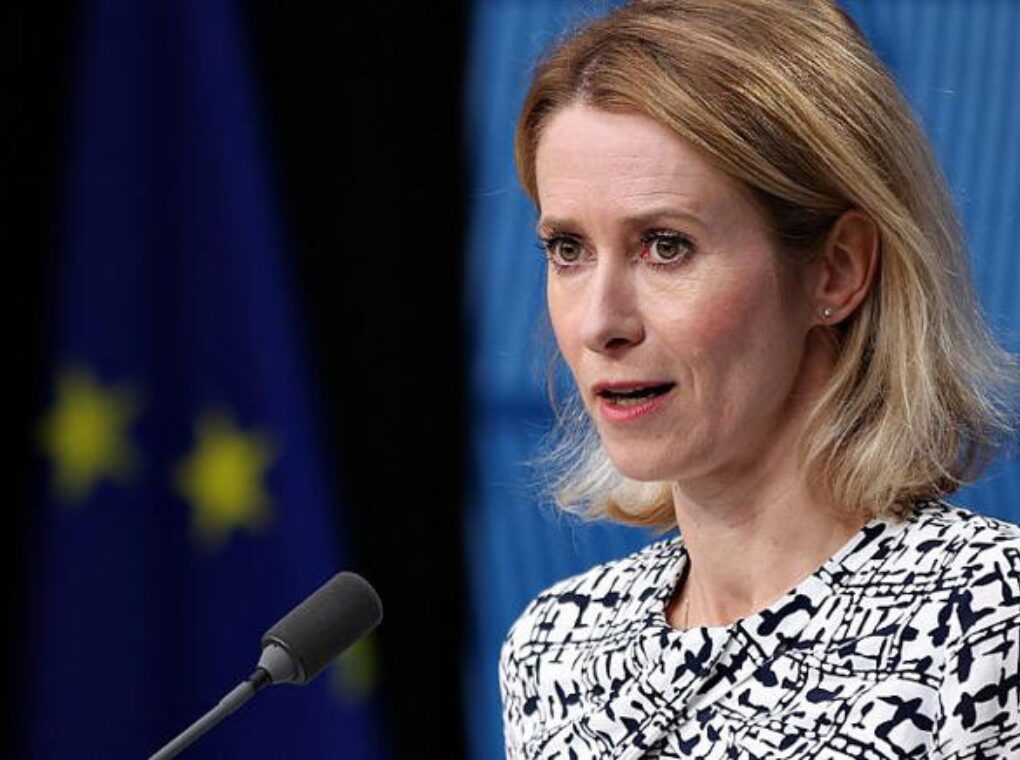When the 27 foreign affairs ministers of the European Union meet in Copenhagen on Saturday, they will face a central question: what additional sanctions can be imposed to increase pressure on Moscow?
Russia’s ongoing strikes against Ukrainian civilians, including a recent attack that damaged the EU delegation in Kyiv, have reinforced the sense among member states that sanctions must remain a key instrument of policy. Yet after 18 rounds of restrictive measures, finding new and effective targets has become increasingly challenging.
Work on the 19th Package.
EU High Representative for Foreign Affairs Kaja Kallas confirmed that preparations for a new sanctions package are underway. “Everybody understands that, considering how Putin is mocking the peace efforts, the only thing that works is pressure,” she noted on Friday in Copenhagen.
A discussion paper prepared by the Danish EU Council presidency highlights several areas under consideration. These include Russia’s oil and gas exports, financial and cryptocurrency activities, and the so-called “shadow fleet” of tankers that help circumvent the G7 oil price cap. Tariffs on bilateral trade are also mentioned.
The paper further suggests consideration of the “Anti-Circumvention Tool”, a measure established in 2023 to address systemic and widespread sanctions evasion by third countries.
Tackling Circumvention
Circumventing sanctions has been a persistent challenge. Companies based in countries such as China, India, Turkey, and the United Arab Emirates have been accused of helping Russia gain access to restricted goods. Until now, the EU has targeted individual firms, but new entities often emerge in their place.
The Anti-Circumvention Tool would represent a shift to broader secondary sanctions. Instead of focusing on single companies, it could restrict exports of sensitive goods to entire countries identified as enabling Russia’s war economy.
Barriers to Activation
Despite its potential, the tool has never been used. There are three main reasons for this:
High activation threshold: It was conceived as a measure of last resort, requiring extensive evidence of systematic evasion.
Need for unanimity: All 27 member states must agree, and past sanctions negotiations have often been slowed by differing national positions.
Diplomatic risks: The tool could have far-reaching effects on relations with third countries. The EU has repeatedly pointed to China, which it says provides around 80% of dual-use goods to Russia. Applying the tool against Beijing would risk significant escalation.
China has already opposed EU sanctions, calling them unilateral and without an international legal basis. When the EU sanctioned two Chinese crypto firms in July, Beijing retaliated with symbolic measures against two Lithuanian banks, underlining the potential for reciprocal actions.
Balancing Unity and Impact
The debate in Copenhagen will therefore be shaped by a trade-off between maintaining EU unity and ensuring sanctions remain effective. Some member states argue the circumstances are exceptional enough to justify stronger action, while others emphasize the need to avoid diplomatic confrontation.
Analysts suggest that, rather than directly targeting China, the EU may first test the Anti-Circumvention Tool on smaller states where evidence of evasion is clear, limiting risks while signaling determination.
Transatlantic Factor
The position of the United States may also influence the debate. While the Trump administration’s stance on Russia sanctions has been uneven, U.S. interest in maintaining pressure on Moscow could encourage the EU to move forward with stronger measures.
As EU ministers deliberate in Copenhagen, the challenge remains how to sustain the effectiveness of sanctions while avoiding divisions within the bloc and major diplomatic fallout abroad. Whether the 19th package will introduce more conventional sectoral measures or take the unprecedented step of activating the Anti-Circumvention Tool will be a key test of the EU’s resolve in addressing Russia’s war in Ukraine.
